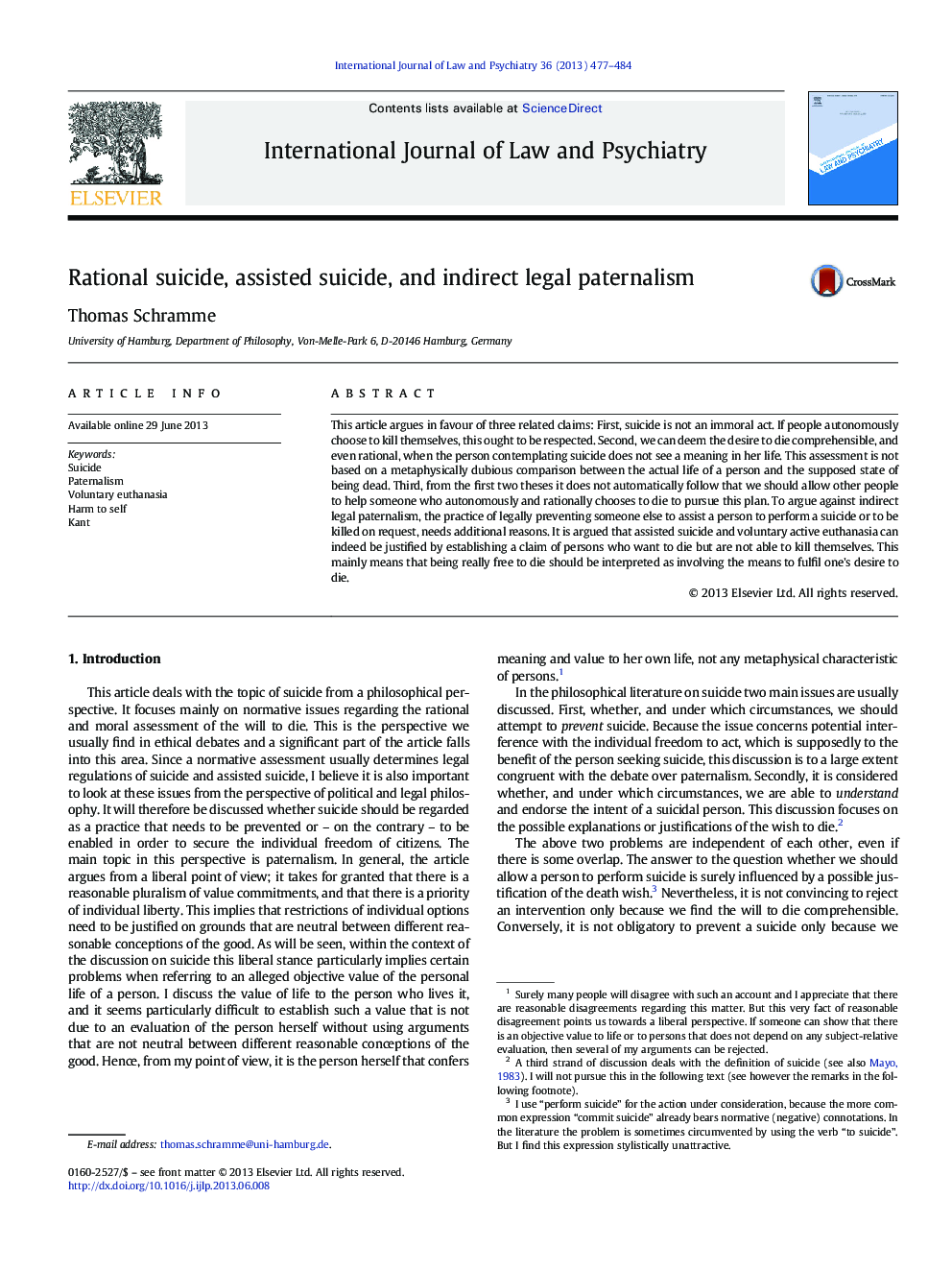| کد مقاله | کد نشریه | سال انتشار | مقاله انگلیسی | نسخه تمام متن |
|---|---|---|---|---|
| 100840 | 1422290 | 2013 | 8 صفحه PDF | دانلود رایگان |

This article argues in favour of three related claims: First, suicide is not an immoral act. If people autonomously choose to kill themselves, this ought to be respected. Second, we can deem the desire to die comprehensible, and even rational, when the person contemplating suicide does not see a meaning in her life. This assessment is not based on a metaphysically dubious comparison between the actual life of a person and the supposed state of being dead. Third, from the first two theses it does not automatically follow that we should allow other people to help someone who autonomously and rationally chooses to die to pursue this plan. To argue against indirect legal paternalism, the practice of legally preventing someone else to assist a person to perform a suicide or to be killed on request, needs additional reasons. It is argued that assisted suicide and voluntary active euthanasia can indeed be justified by establishing a claim of persons who want to die but are not able to kill themselves. This mainly means that being really free to die should be interpreted as involving the means to fulfil one's desire to die.
Journal: International Journal of Law and Psychiatry - Volume 36, Issues 5–6, September–December 2013, Pages 477–484